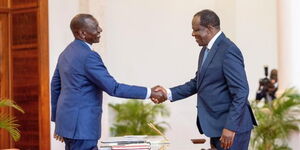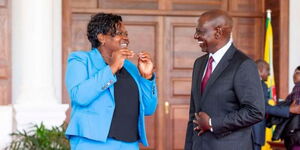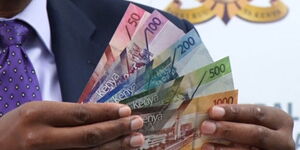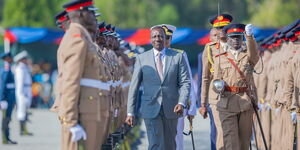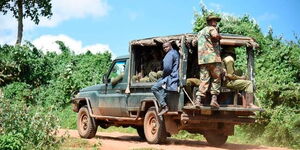GiveDirectly, a US charity organisation has revealed preliminary results of its 12-year experiment in which it gave free money to different clusters of Kenyans in the remote village of Kogutu in Kisumu.
Beginning in 2018, the charity has been giving out a Ksh2,600 monthly stipend to three categories of Kenyans to find out if it was enough to upend their lives.
In the first cluster, GiveDirectly gave the beneficiaries Ksh2,600 monthly for six years and allowed them to use the money according to their choice and preferences.
Some of the individuals received the money for just two years, while others were guaranteed income for 12 years, with the project expected to end around 2030.
The organisation, however, changed tact for a different category by giving the beneficiaries free money but in two-year lump sums. The third category received nothing.
In an interview with NPR, a US media outlet, Nurith Aizenman, a journalist who has been covering the experiment since its onset, revealed that the researchers discovered that people are still responsible even when given free money and asked to spend it freely.
However, the team that received funds in lump sums was likely to find different revenue streams by reinvesting the money or starting businesses.
Those who got monthly stipends positively upended their lifestyles responsibly compared to those who received nothing at all.
"Compared to people who got no money, everyone who got cash was better off when it came to measures of well-being like consumption of protein and spending money on schooling. And that fits with findings from previous studies of no-strings cash aid, namely that poor people don't waste the money," Aizenman stated.
"But the big news here is that people who got their money in a lump sum were way more likely to start a business - a little shop, a motorbike taxi service - than people who got the same amount but parceled out over two years."
Those who got monthly stipends for 12 years were, however, highly likely to start businesses using the funds compared to those who only received monthly stipends for two years.
"But the people who knew they'd keep getting those monthly installments for 10 more years - they also started lots more businesses because they found a way to turn their monthly payments into a lump sum by using these rotating savings clubs," the journalist added.
The clubs, locally known as merry-go-rounds, allow the members to contribute.
The project, valued at Ksh3.6 billion (USD30 billion), includes financing the Kenyan village alongside other financially challenged remote villages in other countries.



